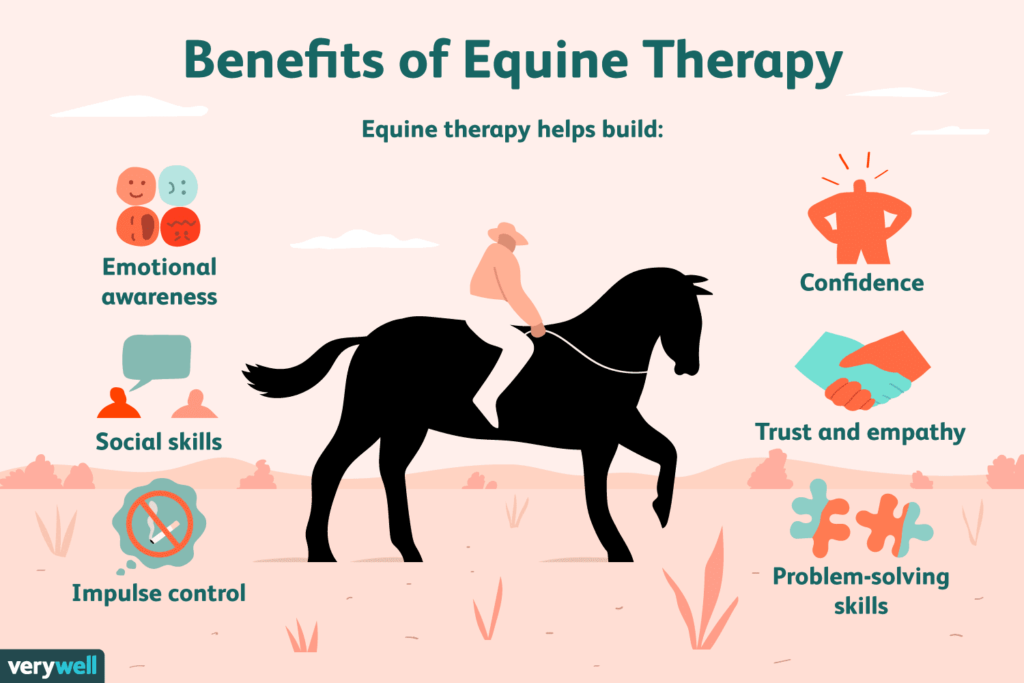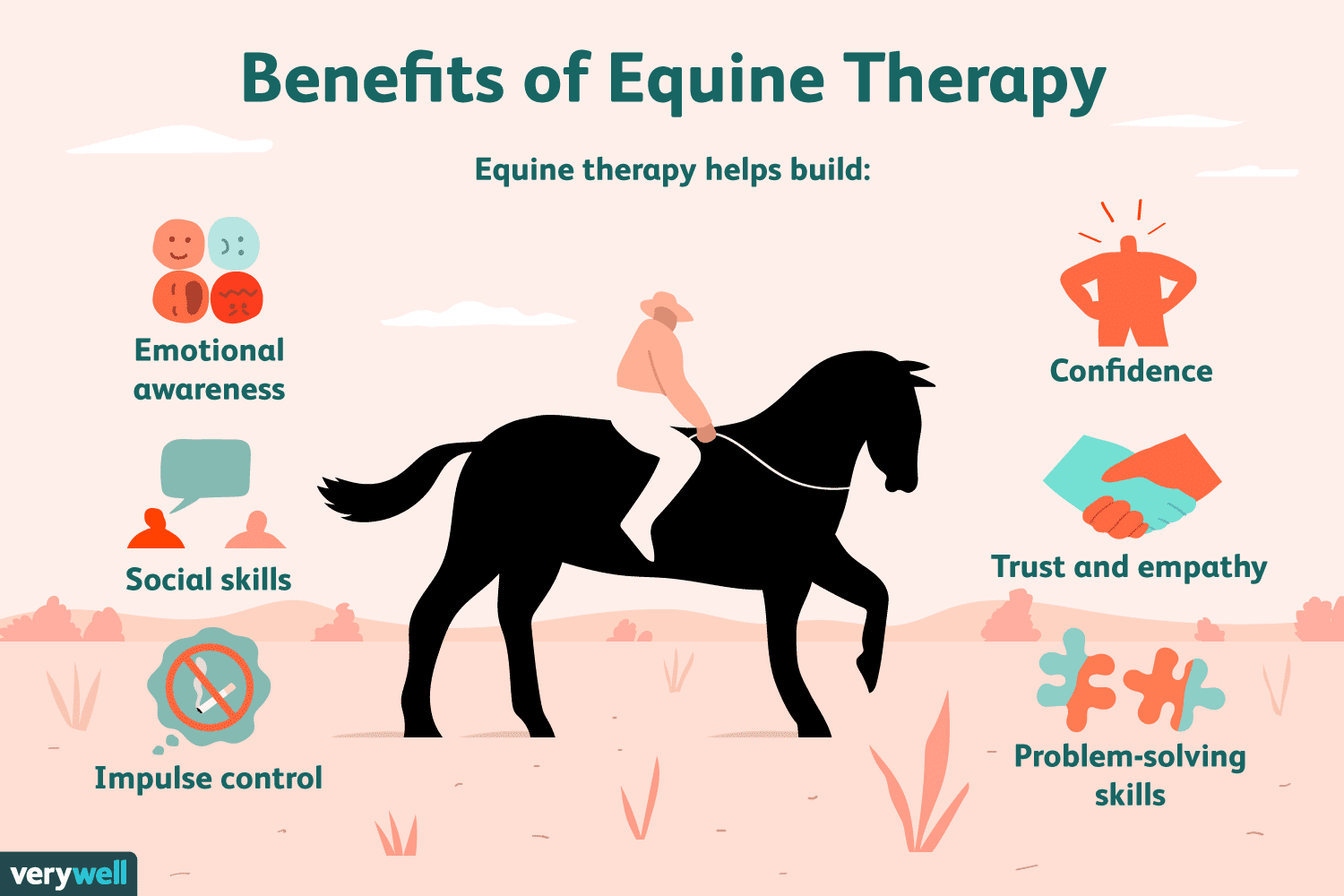Have you ever considered horseback riding as a form of physical rehabilitation? It may sound surprising, but horseback riding actually offers a variety of benefits for people undergoing rehabilitation. In fact, it has been used as a therapeutic activity for individuals with physical disabilities or injuries for many years.
When you ride a horse, it requires your body to engage and activate muscles in a way that is different from typical exercises. The movement of the horse stimulates your muscles and helps improve balance, coordination, and core strength. Additionally, horseback riding can also enhance flexibility, proprioception, and posture. It provides a unique and enjoyable way to engage in physical activity while reaping the benefits of rehabilitation.
If you want to learn more about the benefits of horseback riding for physical rehabilitation and how it can help you or someone you know, stay tuned for our upcoming article on “The Benefits of Horseback Riding for Physical Rehabilitation” on our website. It will delve deeper into the various advantages and provide further insights into this fascinating topic.

The Benefits of Horseback Riding for Physical Rehabilitation
Horseback riding is a popular activity enjoyed by many individuals, but did you know that it can also be an effective form of physical rehabilitation? Whether you are recovering from an injury or living with a physical disability, horseback riding offers a wide range of physical, psychological, and cognitive benefits that can aid in your rehabilitation journey.
Overview of Horseback Riding for Physical Rehabilitation
Horseback riding for physical rehabilitation, also known as therapeutic horseback riding or hippotherapy, involves the use of horses and equine-assisted activities to provide therapeutic benefits to individuals with physical disabilities or injuries. This form of therapy has been found to be highly effective in improving balance, coordination, muscle strength, core stability, flexibility, and range of motion. Additionally, horseback riding can have positive psychological effects, such as increased self-confidence, reduced stress and anxiety, and improved mood and emotional well-being. Finally, horseback riding is also known to enhance cognitive skills, including concentration, problem-solving, and sensory integration.
Physical Benefits of Horseback Riding
Horseback riding offers numerous physical benefits for individuals undergoing rehabilitation. One of the key advantages is the improvement in balance and coordination. As you ride a horse, you need to maintain your balance and adjust your body position to match the horse’s movements. This constant adaptation helps strengthen the muscles responsible for balance and coordination and improves your overall stability.
Another significant physical benefit of horseback riding is the enhancement of muscle strength and endurance. The act of riding requires the engagement of various muscle groups, including those in your legs, core, and upper body. As you ride, you not only develop strength in these areas but also improve your muscle endurance over time.
Furthermore, horseback riding aids in the development of core stability. The horse’s movements create an unstable surface, forcing your core muscles to engage constantly to maintain balance and stability. This improves the strength and stability of your core muscles, which are essential for maintaining good posture and preventing injuries.
In addition to strength and stability, horseback riding also contributes to an increase in flexibility and range of motion. The rhythmic and gentle movements of the horse’s gait allow for the stretching and mobilization of your joints, leading to improved flexibility and an expanded range of motion. This is particularly beneficial for individuals recovering from injuries or living with conditions that limit their mobility.
Psychological Benefits of Horseback Riding
Horseback riding not only offers physical benefits but also provides significant psychological advantages. One of the most notable benefits is the boost in self-confidence and self-esteem. Interacting with a large and powerful animal like a horse can be empowering and build your self-confidence. As you master the skill of riding, you gain a sense of achievement and accomplishment, which positively impacts your self-esteem.
Additionally, horseback riding has been shown to reduce stress and anxiety levels. The rhythmic movements of the horse and the peaceful nature of being outdoors help create a calming and relaxing environment. The bond formed between horse and rider can also provide a sense of emotional support and comfort, reducing feelings of stress and anxiety.
Furthermore, horseback riding has a positive impact on mood and emotional well-being. The release of endorphins, or “feel-good” hormones, during physical exercise can improve your overall mood and enhance your emotional well-being. The sense of freedom and joy that comes from riding can also have a significant positive effect on your emotional state.
Cognitive Benefits of Horseback Riding
In addition to the physical and psychological benefits, horseback riding also offers cognitive advantages. One such benefit is the enhancement of concentration and focus. Riding a horse requires you to stay focused and attentive to your surroundings, as you need to respond to the horse’s movements and navigate different terrains. This constant attention helps improve your concentration and ability to stay focused on tasks.
Moreover, horseback riding promotes the development of problem-solving skills. As you ride, you encounter various obstacles and challenges that require quick thinking and decision-making. The ability to problem-solve in real-time enhances your cognitive skills and transfers to other areas of your life.
Another cognitive benefit of horseback riding is the promotion of sensory integration. Riding a horse stimulates your sensory system, as you feel the horse’s movements, hear the sounds of nature, and see the world from a different perspective. This multisensory stimulation helps improve your ability to process sensory information, leading to better overall sensory integration.
Conclusion
Overall, horseback riding for physical rehabilitation offers a multitude of benefits for individuals recovering from injuries or living with physical disabilities. The physical, psychological, and cognitive advantages of horseback riding make it an effective and enjoyable form of therapy. Whether you are looking to improve balance and coordination, enhance muscle strength and endurance, boost self-confidence and self-esteem, reduce stress and anxiety, improve mood and emotional well-being, enhance concentration and focus, develop problem-solving skills, or promote sensory integration, horseback riding can provide it all. So saddle up and embark on your journey to physical rehabilitation with the incredible benefits of horseback riding.
Note: This article is for informational purposes only and should not replace professional medical advice. Always consult with a qualified healthcare professional before starting any new form of physical rehabilitation.
